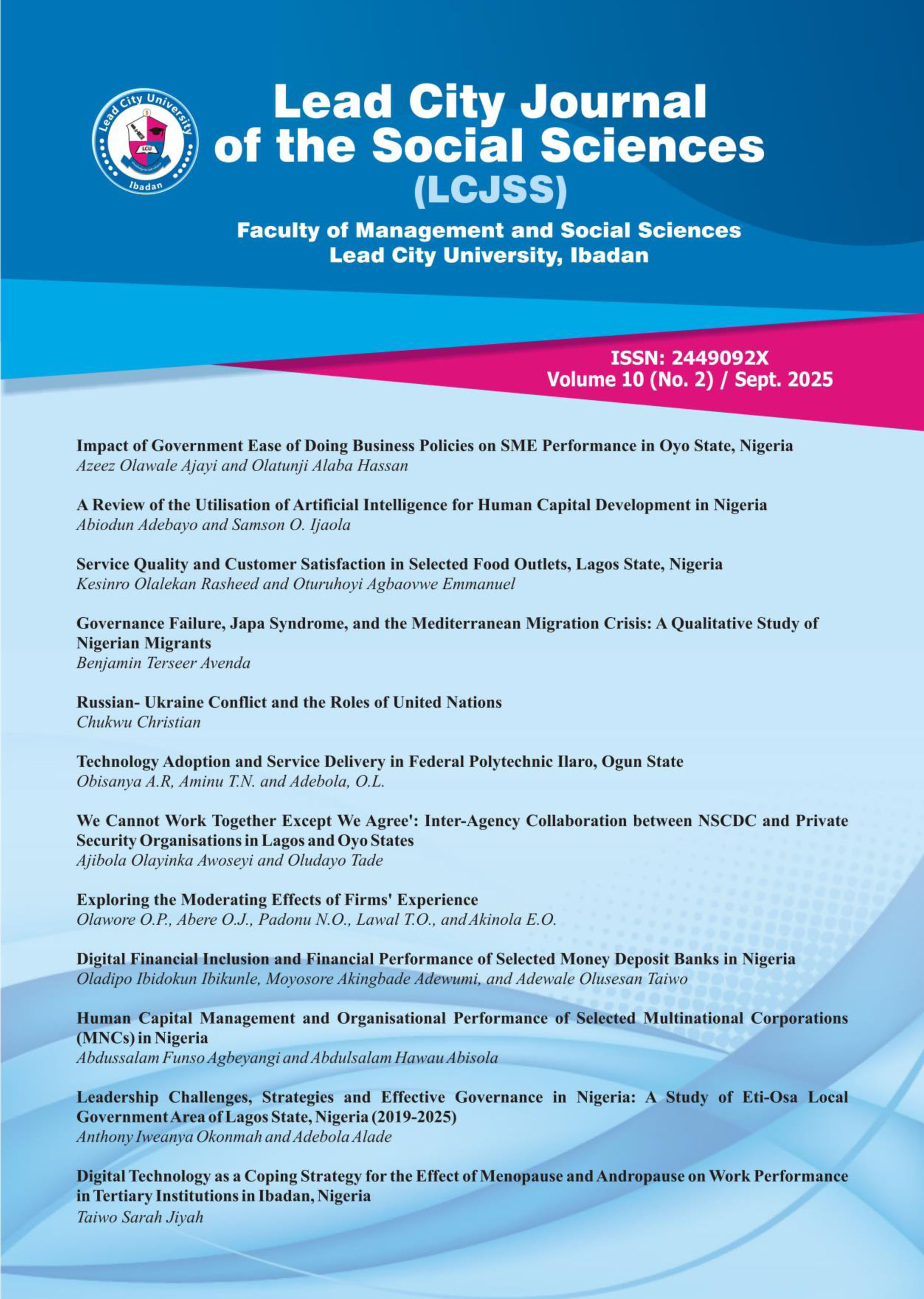Digital Technology as a Coping Strategy for the Effect of Menopause and Andropause on Work Performance in Tertiary Institutions in Ibadan, Nigeria
Keywords:
Digitalization, Menopause, Andropause, Coping Strategies, Employers, Employees, Tertiary Institutions, Work performance.Abstract
Work performance has been observed to be a significant determinant of organizational
achievements. Despite factors known to affect work performance, such as gender and health
status, little research has been done on digital technology and its influence on menopause,
andropause, and work performance. This study, therefore, investigates the effect of technology
use on reducing the impact of menopause and andropause on work performance among
employees in selected tertiary institutions in Ibadan, Oyo State, Nigeria. Through a mixedmethods approach, data were gathered from 210 randomly selected staff aged 40–60 via
structured questionnaires and Key Informant Interviews, which were analysed using
descriptive statistics. The qualitative data collected were analysed using content analysis.
Findings revealed challenges in both genders, including fatigue, hot flashes, and decreased
energy levels during the transition. Women undergoing menopause reported performance
below expectations, while men undergoing andropause noted a decline in physical health.
However, respondents generally disagreed that this transition has a negative impact on work
performance. Coping strategies included physical exercise, medical advice, and counselling.
Breaking the barriers of taboos, misinformation, negative stereotypes, cultural beliefs, and
doubts surrounding this physiological period, digitalization has helped reduce stress by
providing solutions ranging from wearable, mobile apps to virtual care. These findings
contribute to understanding the development of gender-specific technology and the
complexities of work performance during the menopausal and andropause transition and
highlight the need for organizational support for affected employees. Future research could
explore coping strategies with digital technology during this transitional period.

